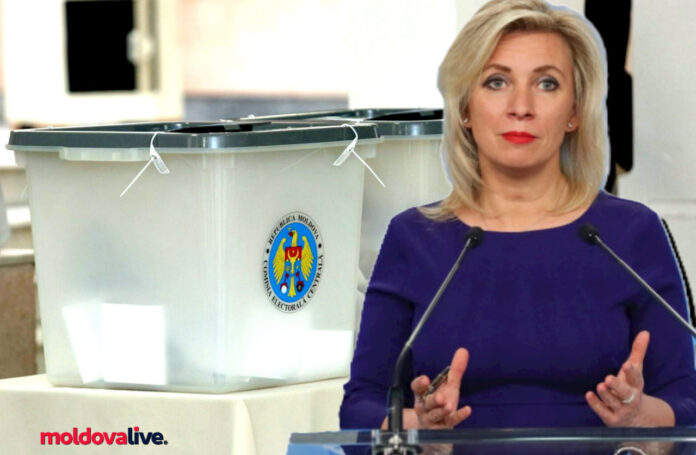While Western leaders congratulate Maia Sandu on her victory in the second round of the presidential elections, turmoil erupts in the Kremlin. The spokesperson for Russian diplomacy claims that, in her view, the election was “undemocratic,” alleging that the Russian-language press faced persecution and that the opposition suffered repression.
While the U.S. accuses Russia of interfering in Moldova’s electoral process, Moscow issues statements regarding Western meddling in the elections. Zakharova also claims that the population has become polarized in light of the referendum on EU membership, which occurred on October 20, 2024, alongside the first round of the presidential elections, reports TASS.
Zakharova stated, “This was the most undemocratic election in all the years of Moldova’s independence. The authorities exhibited unprecedented repression against the opposition and independent media, especially targeting Russian-speaking individuals. Additionally, Western countries openly interfered in the electoral process, and the authorities widely used administrative resources.
FOR THE MOST IMPORTANT NEWS, FOLLOW US ON TWITTER!
This polarization stems from the short-sighted policies of the country’s leadership and the interference of Western countries in internal political processes. Despite the deplorable situation in Moldovan democracy, we expect the government to avoid deepening divisions in society and to respect the interests of the majority of citizens living in Moldova, not in Western countries.”
It is important to note that Maria Zakharova previously manipulated statistical data regarding the votes from the diaspora and, alongside Marina Tauber and Evghenia Gutul, stated that if Moldovans do not vote “correctly,” their children will be taken from their families, and boys will be transformed into girls.
Both the government in Chisinau and U.S. President Joe Biden, along with high-ranking European officials, have spoken about Russian interference in Moldova’s elections. This includes allegations of vote buying against certain candidates by representatives of the fugitive politician Ilan Shor, who is close to the political elite in the Kremlin.
The National Police reported that approximately 150,000 individuals, including several clergy members, allegedly received money from Shor and participated in the illegal financing of parties secretly controlled by the fugitive politician.
Before the elections in Moldova, the Information and Security Service announced that Shor took around 300 citizens to Russia, Serbia, and Bosnia and Herzegovina, where instructors from the Wagner paramilitary group trained them on how to organize mass disturbances during public demonstrations and protests, create explosives, and operate drones capable of carrying flammable substances.


